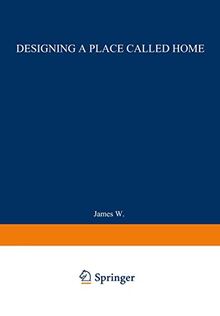
are often lined with garages in front of houses that are clearly more internalized in design, some even taking on a fortress-like appearance. Today's new homes are technically superior in construction; i.e., they are more energy efficient, weather resistant and maintenance free. However, they also seem to lack the warmth and charm of prewar homes, for which more construction dollars were spent on quality veneers, buUt-in features and other human-scale details. The postwar need for massive amounts of "affordable" housing for returning GIs helped to encourage buUding practices that could reduce on-site labor and material costs in houses. The accommodation of the automobile, cost-cutting movements and a variety of other trends caused a gradual decline in the human, social and emotional qualities of postwar residential architecture. This book will attempt to look at the issues and choices facing today's residential designers and home buUders and ask: How can we make our new houses and neighborhoods more responsive to humanistic needs, partlcularly in light of constant pressures to keep housing costs down? This question will generally be addressed by comparing historical designs to those of today, to see if we might be able to reconsider some "old-fashioned" ideas in new housing designs.